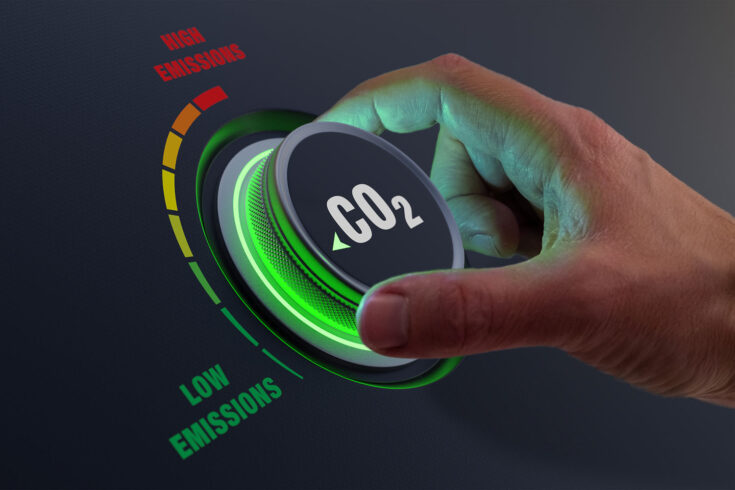MRC today announces its environmental sustainability programme to achieve net zero by 2040, as part of the UKRI sustainability strategy, with a 50% reduction by 2030.
This comprehensive programme will focus on the Medical Research Council’s (MRC):
- science estate
- laboratory operations
- supply chain
- horizon scanning and research in practical applications.
Science estate
The MRC science estate enables scientists to undertake hugely complex work, which is often reliant on precise environmental conditions, such as:
- temperature
- humidity
- air changes.
Systems to manage these requirements are energy intensive and this workstream will de-carbonise our estate by reducing the use of natural resources.
This will improve the wellbeing of occupants, and increase biodiversity on our sites.
Laboratory operations
Scientific equipment uses a large amount of energy, with laboratory consumables such as single-use plastics and hazardous materials presenting most of MRC’s waste.
MRC-funded research teams are committed to reducing these environmental impacts by using alternative or recyclable materials wherever possible.
With MRC institutes recently joining the Laboratory Efficiency Assessment Framework membership, MRC’s sustainability will be further enhanced.
This will see annual projects funded targeting specific areas of improvement, such as:
- the installation of automatic sash closers
- exchanging single-use plastic pipettes with glass products
- installing electric charging points.
These projects will be reviewed for effectiveness with lessons learned shared to with the wider community.
Supply chains
MRC activity relies on a large and diverse supply chain.
MRC has joined organisations leading the net zero transition by committing to meet the requirements of the Science Based Targets initiative.
MRC is determined to go further by targeting its shared supply chain, working in partnership across the public and higher education sector.
Horizon scanning and research in practical applications
Research-based solutions are crucial to achieving net zero so MRC is working on a £1 million funding opportunity with:
- Natural Environment Research Council (NERC)
- Department of Health and Social Care
- NHS England.
This funding opportunity, which is now closed, aims to find practical applications to make life sciences and medical practice more environmentally sustainable, with awards to be made in September 2022.
MRC is actively exploring which other areas of research could advance our knowledge, inform policy and lead to the next generation of solutions.
By working together
MRC already convenes a green group of individuals with diverse backgrounds from our institutes, with contributions from:
- The Francis Crick Institute
- MRC Harwell
- Health Data Research UK
- MRC Laboratory of Molecular Biology
- MRC London Institute of Medical Sciences
- Research Complex at Harwell.
Broader engagement will be crucial to achieving net zero, and MRC will draw on the experience of the entire research community, continuously sharing knowledge to ensure impact and change.
Engagement plans include:
- a workshop at Harwell’s Advance Training Centre to discuss laboratory operations sustainability, with industry representatives sharing knowledge
- a conference for laboratory managers and estates professionals working for MRC partners and collaborators
- direct engagement with MRC’s entire supply chain to ensure it is empowered to support this transition
- direct engagement with our key suppliers to enable a reduce their carbon footprint together with NHS England.
Environmentally sustainable
Professor John Iredale, Interim Executive Chair of MRC, said:
While MRC research continues to be critical to understanding the links between health and the environment, our activity has its own on impact, this must be understood and addressed.
These plans make clear MRC’s commitment to ensuring all the activity it undertakes and funds is environmentally sustainable, and I look forward to working closely with our community and colleagues in UKRI to making them a reality.
Establishing the ambition
Professor Duncan Wingham, Executive Chair of NERC and sponsor for the net zero programme in UK Research and Innovation (UKRI), said:
The MRC environmental sustainability programme is an important step towards the net zero commitment of UKRI.
It is a comprehensive approach and will link in with the activities of the other councils, and indeed will form an important element of corporate learning and development.
The programme demonstrates leadership by MRC in recognising the urgency for action and establishing the ambition to reduce their carbon footprint by 50% within the next eight years.
Get involved
To ask questions or get involved with this programme, email sustainableresearch@mrc.ukri.org
Research into health and the environment
Read about how:
- scientists at the MRC Centre for Environment and Health are at the forefront of research guiding air pollution policies, including London’s ultra-low emission zone
- solar energy in MRC Unit The Gambia at London School of Hygiene and Tropical Medicine supports medical research
- researchers are exploring how pollutants indoors impact child health as part of the UKRI clean air programme.

